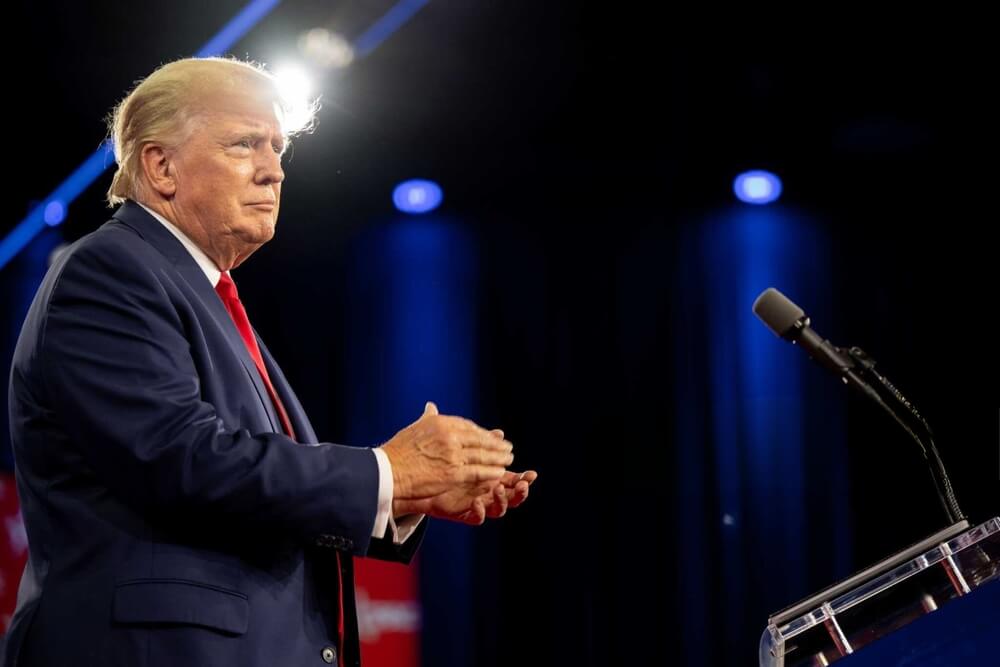The Democrats started the party leadership election campaign with the elections scheduled for 1 February with the burden of several defeats and a widespread feeling that they need comprehensive internal reform.
Defeat in the presidential election, the loss of the majority in the Senate, and decline in most federal states make the Democratic Party leadership an extremely unappealing job.
The downward trend is obvious, and the question of when it will be stopped awaits the response of the new Democratic leadership. It will take on the task in a pretty miserable state.
Democrats control the levers of government in only 16 states, while Republicans have control in 23 states, as calculated by The Washington Post's Karen Tumulty.
How good is it to be in the opposition?
The fact that the Democrats are not in power will be a decisive factor in their efforts to strengthen their positions. Coming to power and thus assuming responsibility usually means the beginning of a decline in ratings.
However, this will not be sufficient to halt the Democratic Party's downward trend. Moreover, it remains uncertain whether Trump's new mandate will truly lead to a decline in trust in the Republican Party or if the next four years will serve as another exception to political legality, behind which Donald Trump will once again stand.
The election of the chair of the Democratic National Committee (DNC) on 1 February, as well as other leadership positions in the Democratic Party, will be primarily for a skilled organiser and tactician rather than a political leader.
"The key for a successful party chair is to get all of those various ideological wings of your party to work together" - Ken Martin
His main task will be to provide money, tie up the tangled threads in the party organisation, and restore it to full functionality, which it currently lacks after multiple defeats in 2024.
"The key for a successful party chair is to get all of those various ideological wings of your party to work together. For me, it doesn't really matter where I stand on any of that, because my job is to make sure that we are winning elections," said Ken Martin, head of Minnesota's Democratic-Farmer-Labor Party and president of the Association of State Democratic Parties, who appears to be one of the current frontrunners for DNC chair.
A long list of errors
While the colourfulness of the Democrats' ideological wings is desirable under ideal conditions, it also had very practical negative consequences in the last November elections, particularly in the turbulent period leading up to them.
Differing opinions over whether Joe Biden should remain on the campaign trail following his disastrous performance in a TV debate with Donald Trump, coupled with disagreements over his successor's nomination, led to irreversible consequences for the Democratic Party's election results in November.
The lists of mistakes made by Kamala Harris and her staff during the presidential campaign are still being published two months after the election
Furthermore, the lists of mistakes made by Kamala Harris and her staff during the presidential campaign are still being published two months after the election, but these lists also serve as a to-do list for the Democrats' future leadership.
Most of them point to the pre-election strategy's incorrect focus, which prioritised issues of identity or minority rights over economic problems, prices, and wages.
"The core problem is that Democrats have forgotten how to talk to Americans who don't go to college. That's 60% of voters,” wrote Ryan O'Connell, a long-time Wall Street lawyer and lifelong Democrat.
Countering Trump's policies
In addition to important organisational issues, the new Democratic leadership will also be under pressure to coordinate strategies to counter Trump's policies, especially in the US Congress.
 The new Democratic leadership will be under pressure to coordinate strategies to counter Trump's policies, especially in the US Congress
The new Democratic leadership will be under pressure to coordinate strategies to counter Trump's policies, especially in the US Congress
Despite the multitude of internal ideological differences, their strategies should not only have a different focus than previous ones but also reflect the strength of common positions.
Furthermore, since the previous strategy, which primarily relied on traditional channels and mainstream media, was clearly not producing results, a new approach to voter communication is required.
Keeping several balls in the air will further complicate timing, putting pressure on Democrats to deliver as early as the midterm elections for the 120th US Congress in November 2026.
"The party might be on the mat. But it helps to remember that at other moments of despair—1988, 2004, 2016—Democrats have managed to regroup, reorganise and figure out how to get back to winning. With the right person at their helm, it can happen again," said Karen Tumulty.